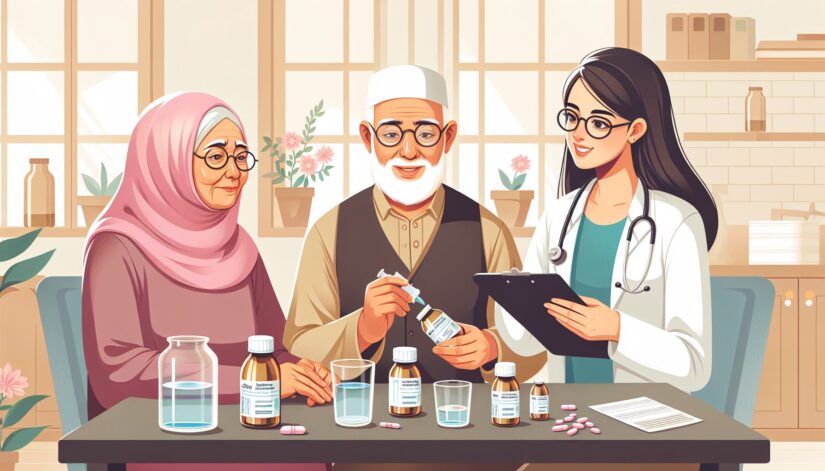As we age, our bodies inevitably undergo numerous changes, affecting our overall health and well-being. It is common for elderly individuals to face various health issues, and managing these conditions effectively is crucial for maintaining a good quality of life. One of the key components in elderly healthcare is the proper administration of medicine. In this article, we will explore the significance of medicine for elderly people and why it should not be taken lightly.
The Role of Medicine in Elderly Healthcare
Medicine plays a vital role in addressing and managing the numerous health conditions that affect the elderly population. Chronic diseases such as diabetes, heart disease, arthritis, and hypertension are prevalent among seniors. These conditions often require regular medication to control symptoms, prevent complications, and improve overall health.
Additionally, elderly individuals may also experience age-related issues such as cognitive decline and mental health disorders, for which appropriate medication can significantly enhance their quality of life. Medicine serves as a tool to alleviate symptoms, reduce pain, and enhance daily functioning, making it an essential aspect of elderly healthcare.
Challenges in Medication Management for the Elderly
While medicine is crucial for elderly individuals, there are various challenges that need to be addressed when it comes to medication management. These challenges can prevent the elderly from receiving the full benefits of the prescribed treatment.
One common challenge is polypharmacy, which occurs when seniors are taking multiple medications simultaneously. Polypharmacy can lead to drug interactions, side effects, and an increased risk of falls and hospitalizations. It is essential that healthcare providers carefully review an elderly person’s medication regimen and ensure that it is optimized to balance effectiveness and safety.
Another challenge is medication adherence. As individuals age, they may face difficulties in remembering to take their medication or following complex dosing instructions. Furthermore, physical limitations such as impaired vision or dexterity can hinder their ability to handle medications correctly. Family members and caregivers can play a crucial role in assisting elderly individuals in adhering to their prescribed medication regimen.
Strategies for Effective Medication Management
To ensure medication is effectively managed in the elderly population, several strategies can be put in place:
-
Regular medication reviews: Healthcare providers should conduct regular reviews of an elderly person’s medications to identify any potential interactions or duplications. This ensures that the medication regimen remains appropriate and avoids polypharmacy.
-
Simplify dosing regimens: Simplifying medication schedules by using blister packs or pill organizers can help ensure adherence and reduce confusion.
-
Medication reminders: Utilizing modern technology, such as alarms or smartphone apps, can help older individuals adhere to their medication schedule.
-
Involving caregivers: Family members or caregivers can assist in medication management, ensuring that medications are taken correctly and on time.
Conclusion
Medicine is an indispensable aspect of healthcare for elderly individuals. Effective medication management can significantly improve their quality of life by controlling chronic diseases, reducing symptoms, and preventing complications. By addressing challenges such as polypharmacy and medication adherence, and implementing strategies for effective medication management, we can ensure that elderly individuals receive the full benefits of their prescribed treatments. Providing the necessary support and care in medication administration is crucial as we strive to enhance the health and well-being of our elderly population.
